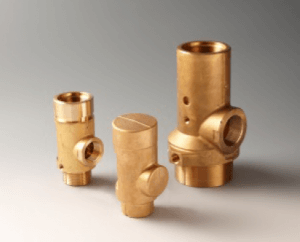Brass Forgings (377, 370, 371, and other brass materials)
Cerro Fabricated Products (CFP) has a new brass pricing strategy to compete globally for production runs of thousands to hundreds of thousands of pieces weighing up to 30 lbs., depending on the geometry of the part.
Brass forgings offer many outstanding advantages over other competing manufacturing processes. For example, forgings add superior mechanical and physical properties created by heat and pressure when the die half compresses the malleable billet.
There is no porosity in the brass alloy forging process.

Advantages of Brass Forgings
- High Strength is created during the forging process that produces a very dense and refined grain structure. The tensile strength is increased.
- Leak resistance is enhanced because of the dense non-porous process which allows for thinner wall sections, resulting in lighter weight and material savings.
- Close tolerances can be achieved so the die surface can produce sharp impressions on the forging surface, which is not economical with other forming processes.
- Mass production of brass forgings lends itself to maximum savings because of the repeatability in the forging process over long or short production runs.
- Excellent process for parts with non-symmetrical shapes.
Brass Alloy Forging Applications
Products manufactured using forged brass include:
- Plumbing fittings for many types of fluids, especially water faucets and taps
- Solenoid Valves
- Climate Control Valves
- Hose Fittings
- Potable water components
- Knobs, handles and many “hand-touch” items that require antimicrobial properties
- Bushings and bearings where the “self-lubricating” properties of a copper-based alloy are an advantage
- Architectural hardware items where the warm, golden color of polished brass provides enhanced appearance
- Golf Putter Heads
- Cryogenic Valves
- Industrial Keys
- Bubbler Heads for drinking fountains
- Sprinkler Heads
Learn more about our forging process.

